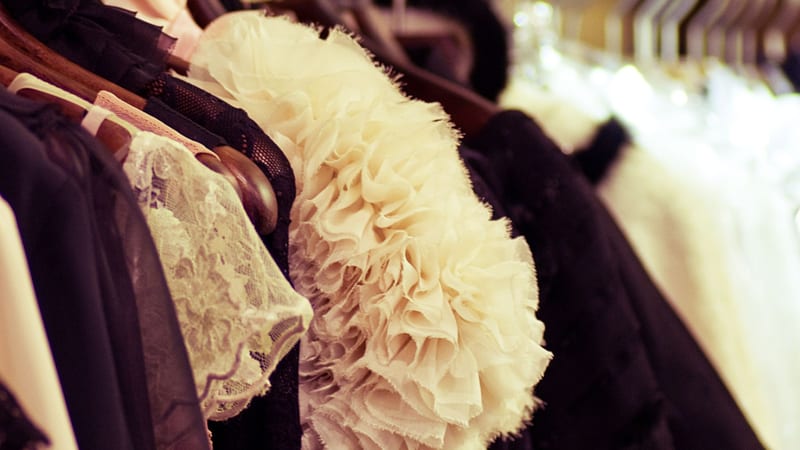The UKIPO is discontinuing the option to file series trade mark applications. Take a closer look at what this means for businesses and deadlines before the rule changes.
Read moreAs London Fashion Week SS24 kicks off today, Hannah Fawcett, who leads our fashion and beauty team, takes a look at the increasingly popular resale market for second-hand luxury goods and the varying attitudes of brands to the adoption of the circular economy model.
The fashion industry is, on the whole, associated with glamour, creativity, and luxury. However, brands are coming under increased scrutiny for their environmental impact and ethical practices, with consumers becoming increasingly conscious of sustainability and corporate responsibility issues.
To address these concerns, many leading brands are embracing the resale and circular economy and are taking advantage of the growing interest in pre-loved luxury items.
Resale: New life for pre-loved
“Resale” is the sale of an item, that has previously been bought. The second-hand (or pre-loved) market for high-end luxury goods has always been strong but with an increasing focus on sustainability, as well as financial concerns amid the cost-of-living crisis, more and more consumers are turning to the pre-loved market to purchase luxury goods, in an eco-conscious manner and at a fraction of the cost of new items. With Forbes reporting that the second-hand luxury market reached $38 billion globally in 2021.
Traditionally, luxury brands have been wary of resale, as it was seen as a potential threat to their exclusivity and brand image. However, attitudes have shifted and resale platforms have gained a greater degree of popularity and prestige in recent years.
While steadfast marketplace platforms such as eBay remain key resources for the pre-loved market, luxury resale platforms that offer authentication processes, such as Vestiaire Collective and The RealReal, have increasingly gained popularity by instilling faith as to the authenticity of the listed products. However, concerns regarding trade mark infringement, counterfeiting and product legitimacy remain key issues for brands.
The problem with resale
The longstanding legal battles between Chanel and What Goes Around Comes Around (WGACA) highlight the key problems with resale platforms.
WGACA is a luxury resale retailer known for its extensive collection of vintage and second-hand designer items that it authenticates itself. In 2018, Chanel brought legal proceedings against WGACA, alleging trade mark infringement, counterfeiting, and unfair competition.
The key argument raised by Chanel was that WGACA was misleading consumers into falsely believing that WGACA has some kind of approval of, or relationship or affiliation with, Chanel or that Chanel had authenticated WGACA's goods, in order to take advantage of Chanel's brand reputation. Chanel contended that this tarnished its brand's reputation and diluted the exclusivity of its products.
A key concern raised by Chanel was that a number of items sold by WGACA were not genuine second-hand Chanel products as they had not originally been put on the market by Chanel. This is a critical point as, provided platforms are selling genuine goods that have previously been sold by the original brand owner, the exhaustion of rights principle will apply, and the brand owner cannot seek to prevent the resale on the basis of its intellectual property rights.
Exhaustion of rights principle
The exhaustion of rights principle, or the first sale doctrine, allows the purchaser of a genuine item to resell, lend, or give it away without the permission of the owner of the underlying intellectual property rights.
The exhaustion of rights principle upholds the idea that once a luxury item is legally purchased, the original brand's control over that specific item ends. This principle supports the legality of resale, as long as the products are genuine and not counterfeit.
With that in mind, and given that luxury brand owners have limited recourse to prevent the sale of pre-loved goods, many fashion houses have instead sought to embrace the second-hand market and partner with selected resale outlets or adopt their own in-house scheme, in either case allowing them greater control over the goods and increasing consumer interaction.
Own-brand reseller schemes
In 2019, Burberry launched a partnership with The RealReal to create a reseller scheme, where customers who consign their Burberry items on The RealReal receive a special offer from Burberry, encouraging them to purchase new items from the brand.
In 2021, Alexander McQueen made a similar partnership with Vestiaire Collective, “Brand Approved”, in the form of a buy-back program. While other brands, such as Oscar de la Renta, Valentino, and Gucci started selling their own vintage.
The decision to embrace the resale market is a strategic move aimed at increasing brand loyalty, reaching new customers, and reducing waste, while also gaining a stronger hold on the nature of the goods being sold as “genuine” items.
By encouraging consumers to recycle their pre-loved items through controlled resale platforms, brands are better able to demonstrate commitment to sustainability and environmental responsibility, while also tackling issues such as counterfeiting and trade mark infringement.
Environmental impact and ESG benefits
The fashion industry is noted as one of the most resource-intensive and polluting sectors globally and luxury brands, in particular, have faced criticism for their role in contributing to fashion's negative environmental impact.
The adoption of resale and circular economy practices by luxury brands can have several positive ESG benefits, from reduction in waste, to lower carbon footprint, as well as enhancing brand image.
The luxury fashion industry's evolving attitude towards the resale and circular economy reflects the changing landscape of consumer preferences and environmental consciousness.
The positive environmental impact of resale, coupled with the ESG benefits, underscores the potential for luxury brands to align with consumer values and reduce their footprint on the planet.
Our colleagues in the beauty and fashion sector are delving into the resale and circular economy by hosting a Swish event along with the Brabners Foundation, which aims to raise awareness of sustainable and mindful consumption in the fashion industry. Find out more about the Swish event.
Experts in intellectual property law in fashion
If you’re a fashion brand that would like to talk to us about intellectual property (IP) law such as on the protection and registration of IP portfolios (namely, trade mark and design registrations in the UK, Europe and internationally), advising on the exploitation and licensing of IP, IP due diligence examinations and IP audits, talk to us.
Related insights
The EU Data Act is a regulation designed to reshape the European data economy by establishing harmonised rules for data access, sharing and portability.
Read moreThe Product Regulation and Metrology Act is ushering in a new era for consumer protection and market oversight, laying the foundations for significant regulatory change.
Read more


